Invited speakers
Prof. Jack Dongarra
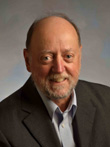 University Distinguished Professor, Department of Electrical Engineering & Computer Science, University of Tennessee Distinguished Research Staff, Oak Ridge National Laboratory
University Distinguished Professor, Department of Electrical Engineering & Computer Science, University of Tennessee Distinguished Research Staff, Oak Ridge National Laboratory
Jack Dongarra holds an appointment at the University of Tennessee, Oak Ridge National Laboratory, and the University of Manchester. He specializes in numerical algorithms in linear algebra, parallel computing, use of advanced-computer architectures, programming methodology, and tools for parallel computers. He was awarded the IEEE Sid Fernbach Award in 2004 and in 2008 he was the recipient of the first IEEE Medal of Excellence in Scalable Computing; in 2010 he was the first recipient of the SIAM Special Interest Group on Supercomputing’s award for Career Achievement. He is a Fellow of the AAAS, ACM, IEEE, and SIAM and a member of the National Academy of Engineering.
Prof. Dr. Satoshi Matsuoka
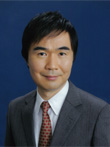 Professor, Global Scientific Information & Computing Center, Tokyo Institute of Technology
Professor, Global Scientific Information & Computing Center, Tokyo Institute of Technology
Satoshi Matsuoka has been a Full Professor at the Global Scientific Information and Computing Center (GSIC) of Tokyo Institute of Technology since 2001. He received his Ph.D from the University of Tokyo in 1993. He is the leader of the TSUBAME series of supercomputers, including TSUBAME2.0 which became the 4th fastest in the world on the Top500 in Nov. 2010, and the recent TSUBAME-KFC becoming #1 in the world for both Green500 and Green Graph 500 in Nov. 2013. He is also currently leading several major supercomputing research projects, such as the MEXT Green Supercomputing, JSPS Billion-Scale Supercomputer Resilience, as well as the JST-CREST Extreme Big Data. He has written over 500 articles according to Google Scholar, and chaired many ACM/IEEE conferences, including Technical Papers at SC’09, Community at SC’11, and overall Program at SC’13. He is a fellow of the ACM and European ISC, and has won many awards, including the JSPS Prize from the Japan Society for Promotion of Science in 2006, awarded by his Highness Prince Akishino, the ACM Gordon Bell Prize for 2011, and the Commendation for Science and Technology by the Minister of Education, Culture, Sports, Science and Technology in 2012.
Prof. Mateo Valero Cortés
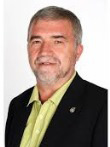 Director of Barcelona Supercomputing Center (BSC), Spain
Director of Barcelona Supercomputing Center (BSC), Spain
Mateo Valero, is a professor in the Computer Architecture Department at UPC, in Barcelona. His research interests focuses on high performance architectures. He has published approximately 600 papers, has served in the organization of more than 300 International Conferences and he has given more than 400 invited talks. He is the director of the Barcelona Supercomputing Centre, the National Centre of Supercomputing in Spain.
Dr. Valero has been honoured with several awards. Among them, the Eckert-Mauchly Award, Harry Goode Award, ACM Distinguished service, the “King Jaime I” in research and two National Awards on Informatics and on Engineering. He has been named Honorary Doctor by the University of Chalmers, by the University of Belgrade, by the Universities of Las Palmas de Gran Canaria, Zaragoza and Complutense de Madrid in Spain and by the University of Veracruz in Mexico. "Hall of the Fame" member of the IST European Program (selected as one of the 25 most influents European researchers in IT during the period 1983-2008. Lyon, November 2008).
In December 1994, Professor Valero became a founding member of the Royal Spanish Academy of Engineering. In 2005 he was elected Correspondant Academic of the Spanish Royal Academy of Science, in 2006 member of the Royal Spanish Academy of Doctors, in 2008 member of the Academia Europaea and in 2012 Correspondant Academic of the Mexican Academy of Sciences. He is a Fellow of the IEEE, Fellow of the ACM and an Intel Distinguished Research Fellow.
Prof. William Gropp
 Director of Parallel Computing Institute National Academy of Engineering, University of Illinois Urbana-Champaign, USA
Director of Parallel Computing Institute National Academy of Engineering, University of Illinois Urbana-Champaign, USA
William Gropp received his Ph.D. in Computer Science from Stanford in 1982.
Since 2008, he has been Deputy Director for Research for the Institute of Advanced Computing Applications and Technologies at the University of Illinois. His research interests are in parallel computing, software for scientific computing, and numerical methods for partial differential equations. He has played a major role in the development of the MPI message-passing standard. He is co-author of the most widely used implementation of MPI, MPICH, and was involved in the MPI Forum as a chapter author for both MPI-1 and MPI-2. He has written many books and papers on MPI including "Using MPI" and "Using MPI-2". He is also one of the designers of the PETSc parallel numerical library, and has developed efficient and scalable parallel algorithms for the solution of linear and nonlinear equations.
Gropp is a Fellow of ACM, IEEE, and SIAM and received the Sidney Fernbach Award from the IEEE Computer Society in 2008. Gropp is a member of the National Academy of Engineering.
Prof. Yutong Lu
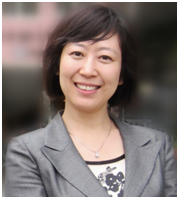 Director of the System Software Laboratory, School of Computer Science, National University of Defense Technology (NUDT), Changsha, China
Director of the System Software Laboratory, School of Computer Science, National University of Defense Technology (NUDT), Changsha, China
Professor Yutong Lu is the Director of the System Software Laboratory, School of Computer Science, National University of Defense Technology (NUDT), Changsha, China.She is also a professor in the State Key Laboratory of High Performance Computing, China. She got her B.S, M.S, and PhD degrees from the NUDT. Her extensive research and development experience has spanned severalgenerations of domestic supercomputers in China. During this period, Prof. Lu was the Director Designer for the Tianhe-1A and Tianhe-2 systems. Her continuing research interests include parallel operating systems (OS), high-speed communication, global file system, and advanced programming environment.
Prof. Thomas Sterling
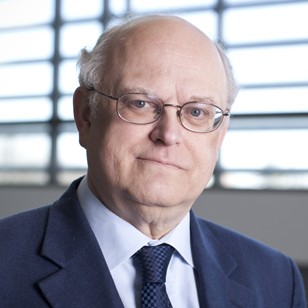 Professor of Informatics and Computing at the Indiana University (IU) School of Informatics and Computing, Chief Scientist of the IU Center for Research in Extreme Scale Technologies (CREST), USA
Professor of Informatics and Computing at the Indiana University (IU) School of Informatics and Computing, Chief Scientist of the IU Center for Research in Extreme Scale Technologies (CREST), USA
Dr. Thomas Sterling holds the position of Professor of Informatics and Computing at the Indiana University (IU) School of Informatics and Computing as well as serves as Chief Scientist of the IU Center for Research in Extreme Scale Technologies (CREST). Since receiving his Ph.D from MIT in 1984 as a Hertz Fellow Dr. Sterling has engaged in applied research in fields associated with parallel computing system structures, semantics, and operation in industry, government labs, and academia. Dr. Sterling is best known as the "father of Beowulf" for his pioneering research in commodity/Linux cluster computing. He was awarded the Gordon Bell Prize in 1997 with his collaborators for this work. He was the PI of the HTMT Project sponsored by NSF, DARPA, NSA, and NASA to explore advanced technologies and their implication for high-end computer system architectures. Other research projects included the DARPA DIVA PIM architecture project with USC-ISI, the Cray Cascade Petaflops architecture project sponsored by the DARPA HPCS Program, and the Gilgamesh high-density computing project at NASA JPL. Thomas Sterling is currently engaged in research associated with the innovative ParalleX execution model for extreme scale computing to establish the foundation principles guiding co-design for the development of future generation Exascale computing systems. ParalleX is currently the conceptual centerpiece of the XPRESS project as part of the DOE X-stack program and has been demonstrated in proof-of-concept in the HPX-5 runtime system software. Dr. Sterling is the co-author of six books and holds six patents. He was the recipient of the 2013 Vanguard Award and is a Fellow of the AAAS.
Prof. Hiroaki Kobayashi
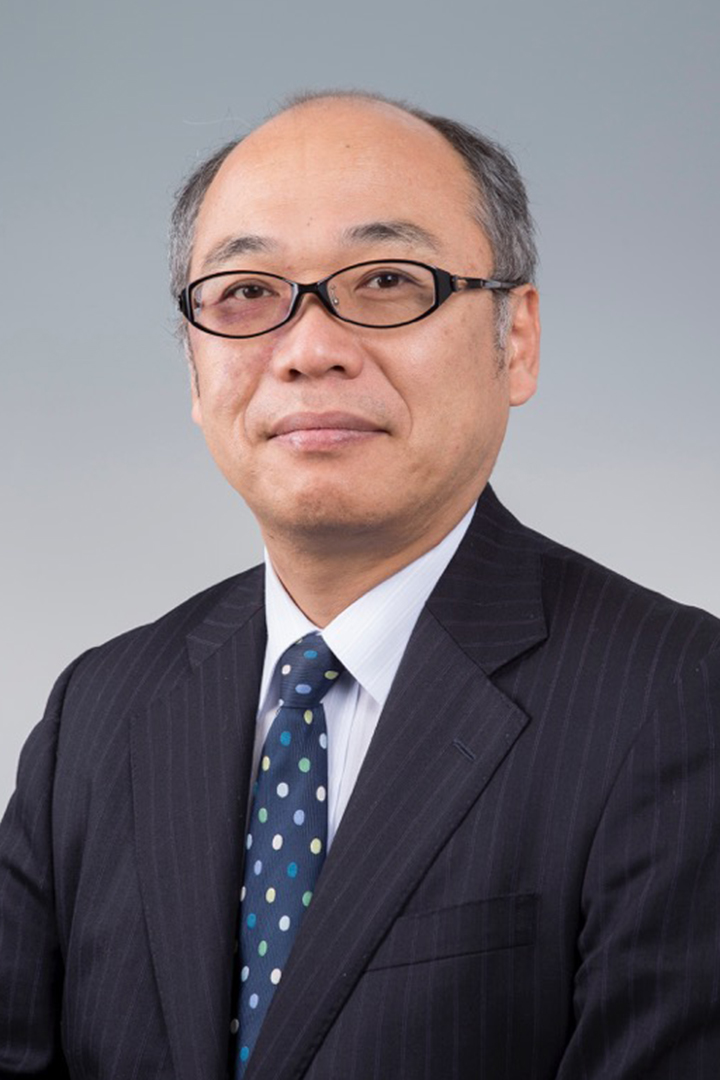 Director and Professor of Cyberscience Center, Professor of Graduate School of Information Sciences, Tohoku University, Japan
Director and Professor of Cyberscience Center, Professor of Graduate School of Information Sciences, Tohoku University, Japan
Hiroaki Kobayashi received his Ph.D in Information Engineering from Tohoku University in 1988. Since then, he has been a faculty member of School of Engineering and Graduate School of Information Sciences, Tohoku University. His research interests are in high-performance, low-power processor architectures, 3D chip architectures, parallel and distributed computing, supercomputing systems and their applications.He was Visiting Associate Professor of Stanford University in 1995, 1997, and 2000 to work with Professor Michael J. Flynn on low-power processor design. Since 2008, he has been Director of Cyberscience Center of Tohoku University, which is one of 7 national supercomputer centers in Japan. He has been involved in many supercomputing projects such as “feasible study of a future HPC system for memory-intensive applications,” which was conducted under the national program for exascale computing by Ministry of Education, Culture, Sports, Science and Technology of Japan. In this project, he has designed a novel vector system with 3D die-stacking technology with NEC.
He is a member of Education and Research Council of Tohoku University. He is also a member of Science Council of Japan. He is the chair of Organizing Committee of COOL Chips, IEEE Symposium on Low-Power and High-Speed Chips.
